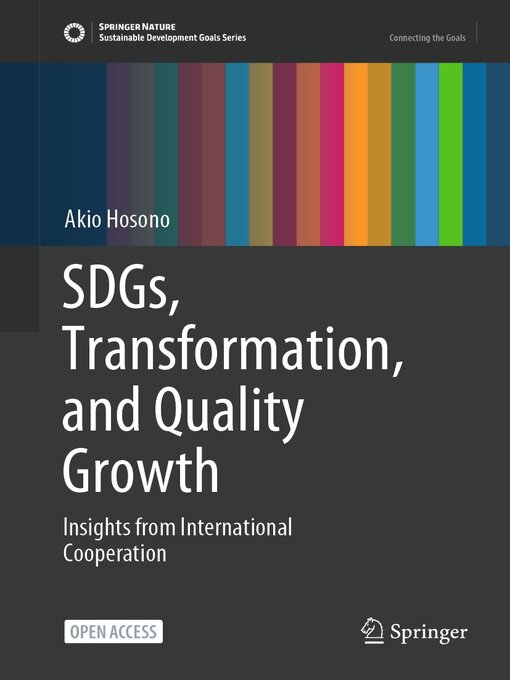This is an Open Access book. The primary objective of this book is to seek out insights into the concept of high-quality growth (HQG). It explores the essential attributes of HQG, such as inclusiveness, sustainability, and resilience, as well as its relationship with transformation, by drawing principally on illustrative cases and instances of international cooperation. The United Nations document on Sustainable Development Goals (SDGs) states that "We resolve to create conditions for sustainable, inclusive and sustained economic growth, shared prosperity and decent work for all." As such, the concept of quality growth is inherent in many aspects of the SDGs. A similar approach can be seen in the Development Cooperation Charter announced by the Japanese government in 2015. According to the Charter, one of the most important challenges of development is quality growth and the reduction of poverty achieved through such growth. The approach in the Charter emphasizes inclusiveness, sustainability, and resilience.
This volume is a pioneering study on quality growth as well as its relationship with SDGs and transformation. Comprehensive studies on quality growth are very few. The case study approach distinguishes the present volume from some previous literature that discussed quality growth within the framework of general policy. Instead, in this book, concrete cases and experiences provide insights into hands-on "ingredients". Through the case studies, it can be seen more clearly that transformation and quality growth are phenomena that do not occur automatically but, rather, ones that require specific, properly designed strategies and approaches. Another unique feature of this book is that it aims to make explicit some of the consistent, but implicit, principles of Japan's international cooperation.
